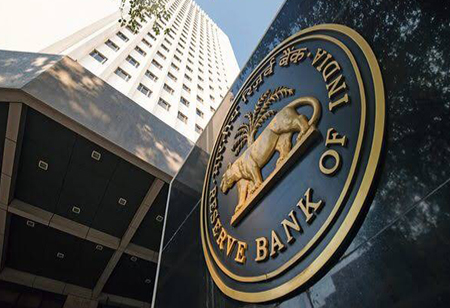Industry hails Government as RBI Relief Measures Help Sustain Businesses
By Rohan A T

Rohan A T
Originating from Wuhan, which is the capital of the Hubei Province of China, Covid 19 or more commonly known as the Coronavirus has bought the world to a standstill. Within a couple of months after the first reports came from China regarding the outbreak of the virus, 199 countries have been reporting cases of Coronavirus infection. A recentreport states that a total of over 700,000 people has been infected by the virus. Apart from China, Italy, the UK, USA, Iran, Germany and many other nations have been seriously affected by this global pandemic. With the death toll increasing on a daily basis, the world nations are planning to stop the spread of this virus. Owing to the fact that social distancing is the only effective way to stop the spread, countries including India is in the middle of a complete lockdown and in India, the lockdown is in effect for 21 days. Health officials and world leaders, still aren’t sure when they will be able to contain this pandemic and this poses a different kind of threat to the world. The world economy has taken a massive hit owing to the spread of the virus and investors are afraid that the government measures will not be able to stop the decline of the economy.
When looking at an Indian perspective, the total number of infected people has already crossed 1000and is increasing on a daily basis and the government has taken various policies including the21 day lockdown to stop the community spread. Almost all the businesses have been closed down and only the companies and shops dealing with essential products like food, and medicine are the remaining ones still operating in the market. Many companies including the IT firms have given the work from home opportunity for their employees as a measure to not completely stop their operations. In India, Sensex has dropped 20 percent below of what was achieved 2 months ago. Apart from this, the value of the Indian Rupee is also on the decline in the International market along with various other currencies. The Finance Ministry of India and RBI have taken various valiant measures to support the Indian economy and slow down the decline of the market. Some of the most notable decisions taken are the 3-month Moratorium on EMIs and Loans. This allows all the commercial banks and NBFCs to have a three-month leeway on all term loans that have been outstanding on 1st March of 2020. This will have a massive impact on the performance of the banking sector of the country that has been going through a tough couple of months.
For ensuring the financial stability of the country, RBI has also taken the decision to cut down the repo rate by .75 percent or 75 basis points. This means that the current repo rate stands at 4. 4 percent when compared to the previous 5.15 percent. Many economic experts believe that this decision was essential to ensure that the economy of the country is not plunging downwards so rapidly. This decision from the apex bank will also help India to boost its growth and at this point of time, even the smallest of growth is crucial for the stability of the Indian economy.
Yet another commendable measure taken by the RBI is to thrust more liquidity into the system so that it can help businesses to sustain after the lockdown is over. This will have a massive impact on how the economy and business sectors of the country will work post lockdown. While no one can deny the fact that, the world economy is going through one of the toughest of times, governments and other regulatory bodies have been working round the clock to offer some kind of resistance towards the downfall of the world economy. The Indian government especially, the Finance Ministry of India and RBI is on top of their game formulating policies that will support the economy of the country during these unprecedented situations.




